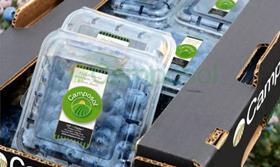
Peruvian fresh produce company Camposol has sought to reassure investors about the impact of the strongest El Niño in two decades on its production.
In a copy of an interview with financial publication Bloomberg seen by Eurofruit on 5 November,the company’s executive chairman Samuel Dyer confirmed that the group was not planning to refinance its debt before the second quarter of 2016, preferring to wait until the cloud currently being cast over investors by El Niño have cleared.
By issuing international bonds for sale after Peru’s rainy season, the group would be in a position to restructure its current US$200m debt, Dyer explained.
Concerns over the possible impact of El Niño’s heavy rainfall on Peruvian fruit and vegetable production – particularly in the north of the country – have seen yields on Camposol’s existing bonds surge by 19 per cent points to 27 per cent during the last three months, the company admitted.
Or as Bloomberg put it in a separate article,the world’s biggest avocado exporter has seen its US$125m of notes due in 2017 fall by 11 per cent in the past three months as higher-than-normal temperatures have apparently caused production to decline.
The concerns reportedly prompted Moody’s Investors Service to cut Camposol's rating to Caa1 at the end of October, seven steps below investment grade.
'There's no support from anybody in the market for Camposol,' Cornel Bruhin of Zurich-based MainFirst Schweiz told Bloomberg. “No-one knows what the impact on the company will be from El Nino.”
Reassurances
Responding to that assertion, Dyer sought to reassure Bloomberg readers, suggesting that such concerns were misplaced since Camposol’s most profitable crops, including avocados and blueberries, will have already been harvested before the rain gets stronger.
“If we go to market, we want to go after El Nino has gone, which is in April,” Dyer said. “We’re very optimistic the market will be there for us. Next year will be a very, very good year.”
He also argued out that a scaling back of asparagus production in favourable of more profitable crops like blueberries and avocados was paying off.
Camposol expects blueberries to account for as much as 40 per cent of its profit this year.
According to the group, production will triple in 2016 to between 14,000 and 15,000 tonnes, equivalent to Argentina’s entire annual harvest.



